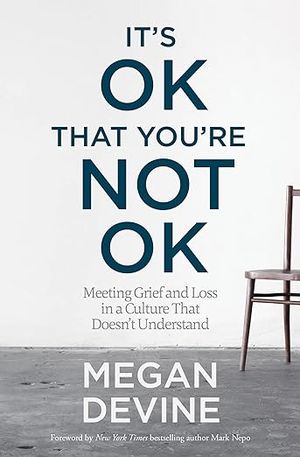
Grief, Loss and Bereavement
Grief, though universal, is deeply personal and varies for each of us—whether through losing a loved one, a relationship, or health. It's like navigating an ocean with intense storms and quiet reflections. Despite its inevitability, why is grief often so silent and solitary?
What is Grief?
How Can Grief Look Like?
Grief can take many forms, affecting people in diverse ways. Common manifestations of griefing may include include feeling emotionally detached or in shock, struggling to accept the reality of loss, and experiencing heightened emotions such as anxiety, sadness, or depression. Individuals may feel disoriented, as though they have lost part of themselves, while questioning the reasons behind the loss. Anger may arise from a sense of unfairness, often accompanied by a desire to find someone to blame. Physical symptoms like sleep disturbances, changes in appetite, and health issues are also prevalent. Social behaviors can vary, with some withdrawing from others while others seek constant companionship. Everyone's journey through grief is unique, and these are just a few ways it might be expressed.
What is Bereavement?
Grief vs. Bereavement
You might stumble upon an overlap between the meanings of grief and bereavement and while the terms are closely related, they encompass different aspects.
The Types of Grief:
Anticipatory grief happens before a loss, affecting the person nearing the end and their loved ones. It involves mourning the future experiences that will never happen. It’s natural to fear what life will be like after the loss.
“Common” grief, starts right after the loss, with feelings of shock, denial, and intense sadness. During this phase, people may struggle with daily activities, experience bursts of deep grief, and feel heightened anxiety. While symptoms should gradually lessen, recovery times vary, and acceptance of the loss comes slowly.
Complicated Grief, refers to the grief that impairs a person's daily life functioning and can take a longer period to recover.
The 5 Stages of Grief:
Elisabeth Kübler-Ross introduced the concept of the five stages of grief in her book On Death and Dying. These stages outline the emotional responses to loss and are as follows: Denial serves as a protective mechanism to slowly process the overwhelming emotions of grief, often manifesting as disbelief with thoughts like “This can’t be real.” Anger follows as the reality of the loss sets in, which may show as rage, bitterness, or resentment toward the loss, others, or oneself. Bargaining begins as an attempt to regain control by thinking, “If only I had done this differently...” or “What if things were different?” to make sense of the pain that griefing causes. Depression brings deep sadness as the full weight of the loss is felt, often leading to withdrawal from others. If prolonged, seeking support is crucial. Finally, acceptance is reached, which doesn't mean the absence of pain but rather finding peace with the loss, learning to live with it, and discovering a new normal while cherishing the memories of what was lost.
Growing Around Grief: A Different Perspective
The "Growing Around Grief" model, developed by Lois Tonkin, offers a nuanced perspective on the grieving process. Unlike the traditional idea that grief gradually fades away, this model suggests that grief remains a constant part of our lives, but it doesn't consume us. Instead, as time goes on, our lives expand around the grief.
Imagine grief as a stone in your life that never disappears. At first, it feels overwhelming, like it takes up all the space. But as you move forward, life begins to grow around it. You meet new people, visit new places, and gain new experiences. These new aspects of life don't erase the grief, but they create more room around it. Over time, the stone remains, but it becomes just one part of a much larger, more varied life.
This grief model emphasizes that healing doesn't mean forgetting or "getting over" the loss. Instead, it’s about learning to live with it as life continues to evolve. The grief is always there, but as you adapt, it becomes one part of a fuller, richer life that includes new joys, challenges, and connections.
The Difference Between Grief and Depression
How Long Does Grief Last?
There is no easy pathway, nor a one-size-fits-all strategy for grief. Grieving is an intensely personal journey, one that demands we grant ourselves the necessary time to navigate the depths of our emotions without the constraints of timelines.
While it's tempting to measure our progress against that of others, it's crucial to recognize and honour the uniqueness of our own grief experience. Comparisons aside, embracing the individuality of our grief journey allows us to authentically process the loss and move forward at our own pace.
How to Support Someone Who is Grieving?
Supporting someone going through grief can be hard to navigate—you might not know what to say or how to help. But understanding grief is key. There’s no set timeline or formula for grieving. It’s an emotional rollercoaster. Your loved one may lash out, withdraw, or cry for hours. What they need most is reassurance, understanding, and a non-judgmental presence.
Sometimes, the best support for grief is simply being there. You don’t need to have the perfect words. Just listen. Let them cry, vent, or reminisce. Your presence and attention can be deeply comforting. A grieving person often doesnt't ask for help, whether out of guilt or feeling like a burden. Offer specific practical assistance, like bringing a meal over or getting an errand done for them. Consistent, tangible support shows you’re there for them without making them ask.
Grief isn’t linear—one day they might seem okay, and the next they’re struggling. Check-in regularly without assuming they’ve moved on. Be sensitive as they navigate their new reality. Grief often comes with symptoms of depression, like isolation or hopelessness. If these signs worsen or persist, encourage them to seek professional help, as the support of a professional might be needed if symptoms do not fade over time and worsen.
If you don't know what to say to a loved one going through grief, check Journey's post filled with people's personal approaches to grieving a loved one:
Ways to Heal:
Bereavement Therapy or Grief Counseling: This form of therapy specifically supports people who have experienced a loss and are going through the grieving process. The therapist can help you understand and process your emotions, face guilt, accept the reality of the loss, and work through the traumatic aspects of the loss.
Cognitive Behavioural Therapy (CBT): This therapy focuses on identifying negative thought patterns and learning to replace them, as certain thoughts can make it more difficult to accept the loss.
Interpersonal Psychotherapy (IPT): Although it is associated with treating depression, IPT has shown prominent results in addressing symptoms associated with bereavement, and helping build relationships while managing grief symptoms.
Complicated Grief Treatment (CGT): Incorporating both CBT and IPT, this treatment allows a person to talk about the history of the loss while building healthy relationships, setting personal goals, and challenging certain thought patterns.
Support groups: Many people find being part of a social group of individuals who have gone through similar experiences to be very beneficial in their healing journey.











